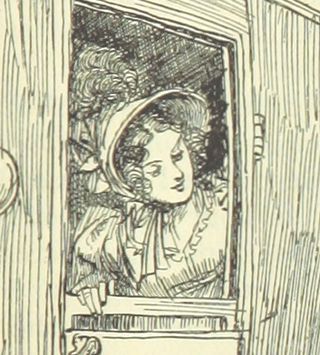Eliza is a female given name in English, meaning "pledged to God" or "joyful."
Kaylee is a given name, most often for females. The name is a modern English combination of the name elements Kay and Lee.
Alisa is a female given name, a version of Alice used in Russia, Ukraine, Finland, Estonia and other countries. Notable people with the names Alisa and Alissa include:
Berti is both an Italian surname and a given name. It is also the German familiar form of Berthold.

Alyssa is a feminine given name with multiple origins. Alysa is an alternative spelling.
Nicole is a feminine given name and a surname.
Élise, Elise, Elyse, Elyce or Elize is the shortened feminine French form of Elizabeth, coming originally from the Hebrew name אלישבע and meaning "My God is an oath" or "My God is abundance".

Amber is a feminine given name taken from amber, the fossilized tree resin that is often used in the making of jewelry. The word can also refer to a yellowish-orange color.
Alyssa is a female given name.
Ellie or Elly is a given name. The name stands on its own or can be a shortened form of any of the numerous female names beginning with the syllable El-, in particular Elizabeth, Eleanor, or Elvira. It can also be a short form of Elaine, Elena, Eliora / Eliorah, Michelle, Elnaz, Amelia, Elham, Elaheh, Eliana, Eloise, Emelia, Elisa, Ellisha, Elisha, Elesha, Shelly, Eleni, or Petronella and as a masculine name of Eleazer, Elliot, Elron, or Elston. In Greek mythology, Ellie (Helle) was the daughter of Athamas and Nephele; sister of Phrixus.

Emma is a feminine given name. It is derived from the Germanic word ermen, meaning "whole" or "universal". It likely originated as a short form of names such as Ermengarde or Ermentrude. Its earliest use begins at least from the early seventh century, with Frankish royal daughter Emma of Austrasia and the wife of Eadbald of Kent found in written sources. Its popularity in the medieval era increased because it was the name of Emma of Normandy, mother of Edward the Confessor. Emmeline is a Norman variant of Emma that was introduced to England by the Norman invaders in the 11th century. The name is etymologically unrelated to Amalia, Amelia, Emilia, and Emily, all of which are derived from other sources, but all of these names have been associated with each other due to their similarity in appearance and sound. Emma has been used as a short form of some of these names or shares diminutives such as Em or Emmy with them.
Elisa is both a feminine and masculine given name. It is of Phoenician origin. According to legend, the first queen of Carthage was Elissa. Another opinion is that it is a shortened form of Elisabeth, a variant of the Biblical name Elizabeth or that it is a shortened version of Elisha or Eliseus. For other uses, see Elisa (disambiguation).
The name Brooke is most commonly a female given name and less commonly a male given name, also used as a surname. Other forms include Brook. The name "Brooke" is of English origin.
Jamila (Arabic: جميلة) is a feminine given name of Arabic origin. It is the feminine form of the masculine Arabic given name Jamil, which comes from the Arabic word jamāl, meaning beautiful. The name is popular on a global scale, in regular use by both Arabic speaking and non–Arabic speaking populations and holds religious significance for some Muslims. Due to differences in transcription, there are several variations on how to spell the name.
Fuchs is a surname; it has as variants Fux, Fuhs and Fuchß. Notable persons bearing it include the following:
Ally is a unisex given name, nickname and/or surname. It is a variant of Allie and Ali. It is used as a diminutive nickname for the given names Alison, Alexandra or Alyssa (feminine) or Alexander, Alister, or Alan (masculine). Notable people with the name include:
Alarie is a French surname. Notable people with this name include:
Margo or Margó is a female given name, a form of Margaret. In Estonia, it is also a male given name.



